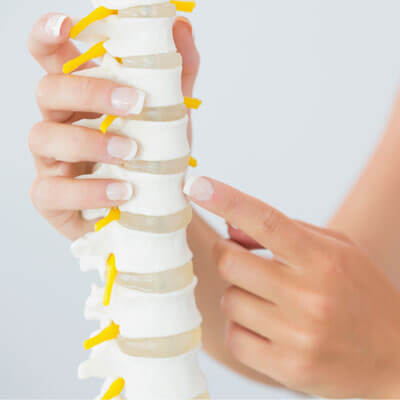Thyroid Health & Spinal Function
at Central Connecticut Chiropractic

Thyroid conditions, which have a profound impact on everyday life regardless of severity, are among the most under-explored ailments plaguing people in the world today.
An estimated 20 million Americans have some form of thyroid disease. Up to 60 percent of those with thyroid disease are unaware of their condition. Women are five to eight times more likely than men to have thyroid related problems. The thyroid gland plays a huge role in our body, influencing the function of many of the body’s most important organs. Ensuring that the thyroid gland is healthy and functioning properly is vitally important to the body’s overall well-being.
The nerve supply to the thyroid gland is derived from the superior, middle, and inferior cervical sympathetic ganglia. Alterations in spinal structure can often be a cause or contributing factor to thyroid related issues.
Supporting Resources
Hyperfunctional or hypofunctional neurons along a neural chain prevent normal nerve transmission causing disturbances in the homeostasis of the cells, tissues and organs.”
T.N. Lee, M.D., Thalamic Neuron Theory. Medical Hypotheses, Nov 1995; 285-302
40% of hypothyroid patients had predominantly sensory signs of a sensorimotor axonal neuropathy early in the course of thyroid disease.
-Journal of Neurology, Neurosurgery & Psychiatry, 2000 Jun;68(6):750-755
Studies have shown that fifty percent of hyperthyroid patients have damage to the pathways in their nervous system.”
ENDOCRINOLOGY, Klavinskis L. 122:567, 1988
The metabolic responses to spinal cord stress involve every organ and tissue of the body and conditions of traumatic stress will be associated with changes in serum thyroid.
-International Journal of Health Science, 2014; 3(2):87-90
Spinal cord trauma produces a major alteration in thyroid function.”
Tator, C., The effect of acute spinal cord compression injury on thyroid function. Surgical Neurology
CONTACT US
Thyroid health is closely linked to spinal and neurological function. Contact us today to learn how Chiropractic care may help support thyroid balance and overall well-being.
